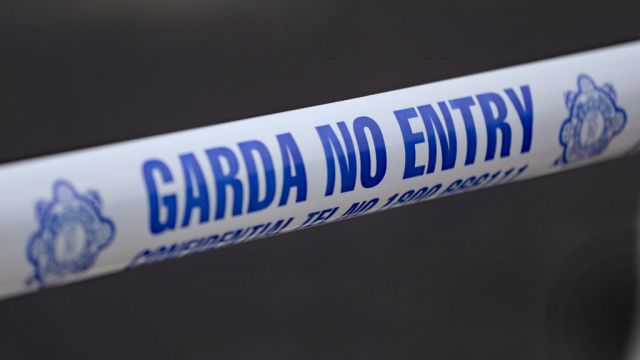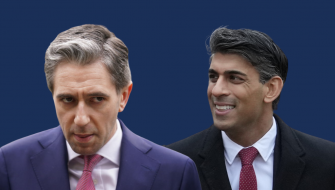Murder accused Matusz Batiuk was entitled to defend himself when he was attacked in his own home, a defence barrister has told the Central Criminal Court.
In his closing address to the jury, Vincent Heneghen SC, for Mr Batiuk, said the accused’s first words during a 999 call after he stabbed Michael McDonagh were “I did it in self-defence”, and he had maintained that position throughout his garda interviews.
However, in his closing speech, prosecution counsel Desmond Dockery SC said that when Mr Batiuk took a knife and “plunged” it into Mr McDonagh, he did so “with the intent of murder”.
He told the jury they had heard evidence from the pathologist who said that a knife wound plunged to a depth of 12cm would be likely to cause death, and in this case it did.
Counsel said Mr McDonagh was a 24-year-old man whose life was “snuffed out” by Mr Batiuk’s knife that evening.
Mr Batiuk (33), formerly of Carrabeg Estate, Swinford, Co Mayo, has pleaded not guilty to murdering Mr McDonagh (24) at a housing estate in Swinford on November 16th, 2020.
Mr Dockery said what is not in dispute is that Mr McDonagh was killed on November 16th by a knife wound, for which Mr Batiuk admits liability.
Counsel said murder requires the specific mental intent to kill or cause serious injury. Where that intent cannot be proved, he said, that is not known as murder but rather as manslaughter.
He said in this case, the prosecution contends that when Mr Batiuk took a knife and plunged it into Mr McDonagh, he did so with the intent of murder.
He said murder does not have to be planned, the intention to kill or cause serious injury can be formed in a moment.
Threat
He said a single stab wound was the sole cause of death in this case and told the jury that “when the direction of the wound was forward and at least 12cm deep, it’s not surprising that such damage was done”.
Counsel told the jury they must consider what threat, if any, Mr Batiuk faced from Mr McDonagh and whether he honestly believed that he was under attack from Mr McDonagh when he acted in the way that he did.
He told the jury they must go further and also look at whether the force used by the accused was objectively reasonable.
“Where the accused used excessive force and knew it was excessive, that’s not self-defence, the appropriate verdict is murder,” counsel said.
He said if the jury find that by thrusting the knife into Mr McDonagh that Mr Batiuk’s use of force was excessive, but that he honestly thought it was reasonable, then he should be found not guilty of murder but guilty of manslaughter.
He said if the jury found that Mr Batiuk did not use excessive force, but used no more force than was reasonable and that he acted in self-defence then, counsel said, he is entitled to an acquittal.
However, he said the prosecution contends there is no basis for this verdict, in circumstances where there was no evidence of a weapon on Mr McDonagh’s person when the accused stabbed him.
He told the jury they will also have to decide if Mr Batiuk’s mental illness diminished his responsibility for what happened. He said the burden of proof for this lies with the defence.
He said the jury must consider the evidence given by the two expert medical witnesses in relation to Mr Batiuk’s longstanding schizophrenia.
Tragic case
Counsel said Mr McDonagh was a much loved family member whose life had been “snuffed out” by Mr Batiuk’s knife that evening.
In his closing address, Mr Heneghen said the defence case is one of self-defence, that the accused acted in self-defence when he stabbed Mr McDonagh.
He said there was no doubt that this is a tragic case and that a young man, aged just 24, had lost his life.
He said because there appears to be no witnesses to the stabbing, the jury has to look at the surrounding facts and build a picture for themselves.
Counsel told the jury they must explore Mr Batiuk’s state of mind at the time of the stabbing but said they must also look at the state of mind of the deceased person, Mr McDonagh.
He said the court had heard evidence from a witness who worked at a restaurant visited by Mr McDonagh on the evening he was killed, who said he had threatened to “slice her”.
He said this was a man who was, at the very least, acting in an aggressive fashion towards someone he did not know.
He said the three men then went to Mr Batiuk’s house and what was clear from the first 999 call was that the accused was looking for assistance from gardaí to get people out of his house.
“You don’t phone the guards expecting them to come and then go out and kill someone. This goes to my client’s state of mind,” counsel said.
He said this was Mr Batiuk’s home and a place where he “should feel safe”.
Second call
He said during the second call at 10.57pm Mr Batiuk phones 999 and told the operator: “I stabbed a man. I did it in self-defence.”
Mr Batiuk had inflicted just one stab wound, counsel said, “not three, not 12”.
He referred to Mr Batiuk’s garda interviews and said the accused had told gardaí himself that if he had intended to cause serious harm or death he would have went for Mr McDonagh’s neck.
He said if they find the accused not guilty of murder but that he may be guilty of manslaughter then they must consider whether he had used more force than is reasonably necessary. Mr Heneghen said the State has not proven how much force was used.
“The knife went in deeply, but the pathologist said she couldn't give an answer to how much force was used because if Michael McDonagh was coming forward, there was momentum in that,” he said.
There’s nothing in evidence that contradicts what he says about Mr McDonagh coming towards him,’ counsel said.
“I submit to you that a single stab wound, defending yourself from someone who is in your house that you don’t want in your house who is with someone who has stabbed him before is reasonable force.”
Counsel said Mr McDonagh’s first words, both to the 999 operator and to Detective Garda Sinead Caheny was that he did it “in self-defence”. He said Mr Batiuk had maintained this position throughout his garda interviews.
The jury previously heard from witness Paul Maughan, who made a statement to gardaí that the accused “went for” Mr McDonagh with the knife and “tried to do him” before he “went for” Mr Maughan himself.
However, in his direct evidence to the court, Mr Maughan told the jury that he did not witness the fatal stabbing, while also admitting that he broke into the accused's home and stabbed him months before.
In her charge to the jury, Ms Justice Ellen Ring told the panel they must first look at whether Mr Batiuk believed that it was necessary to defend himself at all.
She said if they think Mr Batiuk may have honestly believed that it was necessary to use force to defend himself then they must decide whether the type and amount of force he used was reasonable.
“To prove murder the prosecution must prove that Mr Batiuk knew the amount of force he was using was excessive or that he didn’t’ believe it was necessary.”
She reminded the jury they have heard evidence that both psychiatrists who gave evidence in the case are of the view that Mr Batiuk’s responsibility may have been diminished by his mental disorder.
The trial continues on Wednesday when Ms Justice Ring will continue her charge to the jury of nine men and three women.







